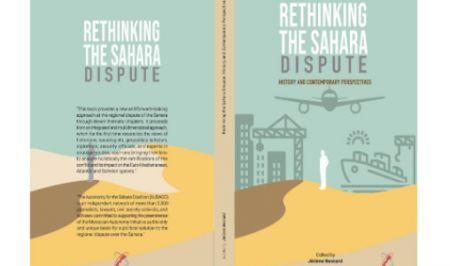“Rethinking the Sahara Dispute”, Book Pointing out Responsibility of Algeria in Conflict over Moroccan Sahara – Rwandan Pundit –
The collective book in English entitled “Rethinking the Sahara Dispute: History and Contemporary Perspectives” points to the responsibility of Algeria in the continuation of the conflict over the Moroccan Sahara, said Rwandan expert and academic, Dr. Ismael Buchanan, who contributed to the production of this book. “My contribution to this work is based on history, facts, UN resolutions and honest and objective political analysis. It is important to understand how Algeria is using this conflict to nurture purely hegemonic interests,” said this professor of political sciences at the University of Rwanda about the publication of this interdisciplinary work, carried out at the initiative of the Coalition for the Autonomy of the Sahara (AUSACO) on the occasion of the Throne Day. Through a chapter entitled “The genesis and the actors in the regional conflict over the Sahara: a historical overview”, “I tried to show how Algeria has always tried to systematically prevent the completion of the territorial integrity of Morocco,” he said, noting that this chapter, divided into three parts, explains how Algiers arms and finances the separatists in order to keep this conflict running and prevent any realistic solution. For this international relations consultant and expert in the Maghreb affairs, it is important to draw attention to this “shameful reality” which blocks the Maghreb Union and delays the development and integration of the whole region. “Algeria, which is unfortunately still stuck in the past, a past that dates back to the Cold War, is using this artificial dispute for expansionist purposes to forge for itself the image of the dominant country in the region. The ultimate objective of the leaders of this country is obviously to stop, at all costs, the rise of Morocco as an African power”, he noted. He called on the international community and the UN to put more pressure on Algeria so that it shoulders its responsibility for the settlement of the conflict, affirming in this sense that “there is plenty of evidence confirming Algiers’ implication”.

